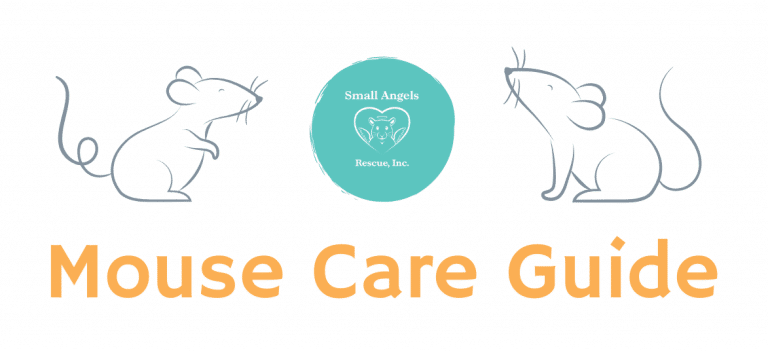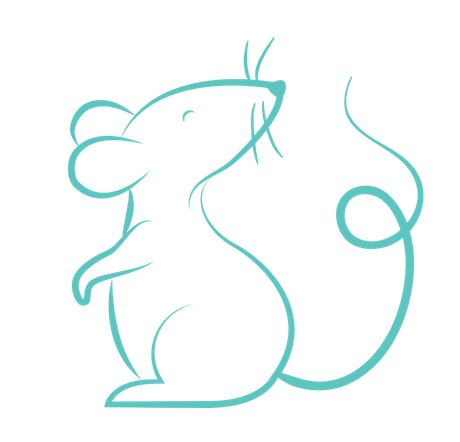Mice

Domestic mice are intelligent and adorable pets and come in all kinds of colors. Related to the wild house mouse, domesticated mice have been bred as pets for centuries. They are social little creatures and love to have the companionship of other mice. However, unaltered male mice will likely fight if left together, so single male mice need a lot of attention from their human companions. Mice live on average 2 years, but they sure do pack a lot of life into that short time frame! Mice are difficult to handle for young children, but make great pets for adults and older children.
Habitat requirements
- Minimum habitat size: 20 gallon aquarium tank or bin-cage of a similar size for one to two mice, 40 gallon aquarium tank or bin-cage of similar size for three or more mice
- Must have mesh lid to prevent mice from escaping
- Play area: mice will climb wire playpens. Empty pop-up ball pits designed for children work very well as a play area
- Appropriate wheel: solid plastic upright wheel at least 6 inches or larger depending on the size of the mouse
- Clean wheel and habitat at least once a week
- Water bottle must be accessible at all times
Bedding
- Preferred: Kaytee Clean and Cozy- Natural
- Second Option: Oxbow Pure Comfort Small Animal Bedding – Natural or Blend
- Third Option: Carefresh Small Animal Bedding – Natural
Food
- Preferred: Higgins Vita Garden mouse and rat food and Science Selective rat and mouse food
- Second Option: Oxbow Essentials young rat and mouse food
- Third Option: Sunseed Vita Prima mouse and rat food
Snacks
Mice love snacks and they are a great way to keep you mouse healthy. Here is a list of mouse friendly snacks:
- Unsalted pumpkin seeds
- Oats
- Dried carrots
- Dried Mealworms
- Dried Grasshoppers
- Dried Crickets
- Apples
- Bananas
- Pear
- Peas
- Green beans
- Spinach
- Kale
- Cauliflower
- Broccoli
- Cooked pasta
- Hard boiled eggs

Common signs of illness*
- Sudden weight loss or weight gain
- Lumps on or under the skin
- Presence of porphyrin, a pinkish red substance, around nose and eyes (can cause itching and irritation and can be a sign of stress and/or lead to secondary infections)
- Sudden or gradual reduction in energy
- Refusal to eat or drink
- Low body temperature, mouse is cold to the touch and fluffs up fur in an attempt to warm themself
*This is not a complete list and mice are often very good at covering up signs of illness. Weighing your mice semi-regularly can help catch early signs of illness.
